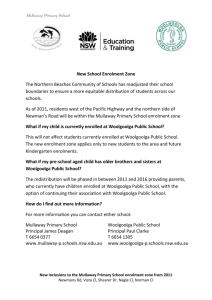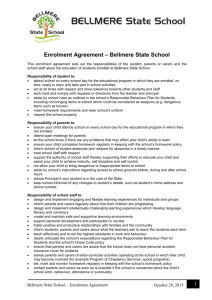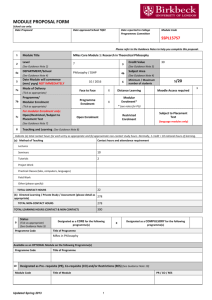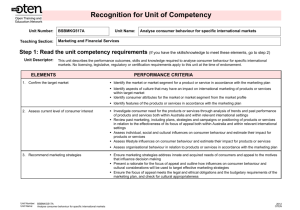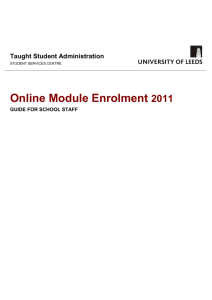Preventing and responding to extreme behaviour
advertisement
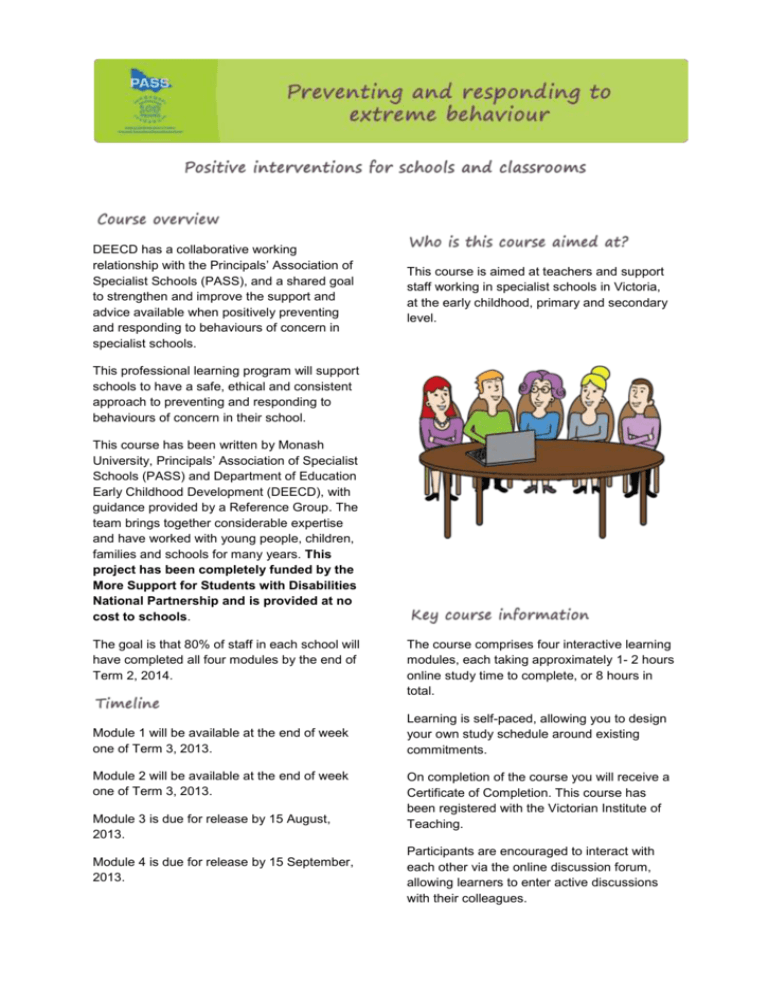
DEECD has a collaborative working relationship with the Principals’ Association of Specialist Schools (PASS), and a shared goal to strengthen and improve the support and advice available when positively preventing and responding to behaviours of concern in specialist schools. This course is aimed at teachers and support staff working in specialist schools in Victoria, at the early childhood, primary and secondary level. This professional learning program will support schools to have a safe, ethical and consistent approach to preventing and responding to behaviours of concern in their school. This course has been written by Monash University, Principals’ Association of Specialist Schools (PASS) and Department of Education Early Childhood Development (DEECD), with guidance provided by a Reference Group. The team brings together considerable expertise and have worked with young people, children, families and schools for many years. This project has been completely funded by the More Support for Students with Disabilities National Partnership and is provided at no cost to schools. The goal is that 80% of staff in each school will have completed all four modules by the end of Term 2, 2014. Module 1 will be available at the end of week one of Term 3, 2013. Module 2 will be available at the end of week one of Term 3, 2013. Module 3 is due for release by 15 August, 2013. Module 4 is due for release by 15 September, 2013. The course comprises four interactive learning modules, each taking approximately 1- 2 hours online study time to complete, or 8 hours in total. Learning is self-paced, allowing you to design your own study schedule around existing commitments. On completion of the course you will receive a Certificate of Completion. This course has been registered with the Victorian Institute of Teaching. Participants are encouraged to interact with each other via the online discussion forum, allowing learners to enter active discussions with their colleagues. There are also a number of anonymous surveys which encourage staff to reflect and share ideas. The data from these surveys is instantly available to all users and may stimulate discussion in a staff meeting or whole school planning on any issues or suggestions that arise. The modules use a variety of tools such as videos, interviews, discussion groups and selfreflection exercises to support the course content. There is a video tour to guide your progression through the modules. The course “Preventing and responding to extreme behaviour” can be accessed via the DEECD Professional Learning Portal athttp://www.tech-savvy.com.au/deecdvic There are a total of four interactive modules: Module 1: Whole school approach to supporting behaviour Module 2: Understanding behaviour Module 3: Teaching alternative behaviour To ensure that you are linked with your school (for the purposes of group discussions), your school will have its own group enrolment key. This key will only need to be used the first time you access the course.Please speak with your Principal if you do not have your school's access key. Module 4: Crisis management and legislation Here are the instructions for creating an account and then enrolling in a course: Module 1 will introduce you to School-wide Positive Behaviour Support (SW-PBS). There is an opportunity to reflect on your school's progress if you have already commenced SWPBS. The next modules examine the function of behaviour and strategies for replacement behaviour. The final module looks at crisis management and working in within the current legislative framework to provide a safe environment for both staff and students. 1. Click the 'Create new account' button in the 'Login' box and fill in the registration form. An email will be immediately sent to your email address. 2. Click on the confirmation link in the email. Your account will be confirmed and you will be logged in. 3. Select the course you wish to participate in. 4. Enter your 'enrolment key', when prompted. If you do not have your enrolment key, speak to your school Principal. 5. Once you have entered your 'enrolment key', you will be enrolled in the course. You will not require your enrolment key the next time you log in. Any technical issues can be directed to the course administrator, Michelle Payne by email at: payne.michelle.l@edumail.vic.gov.au



